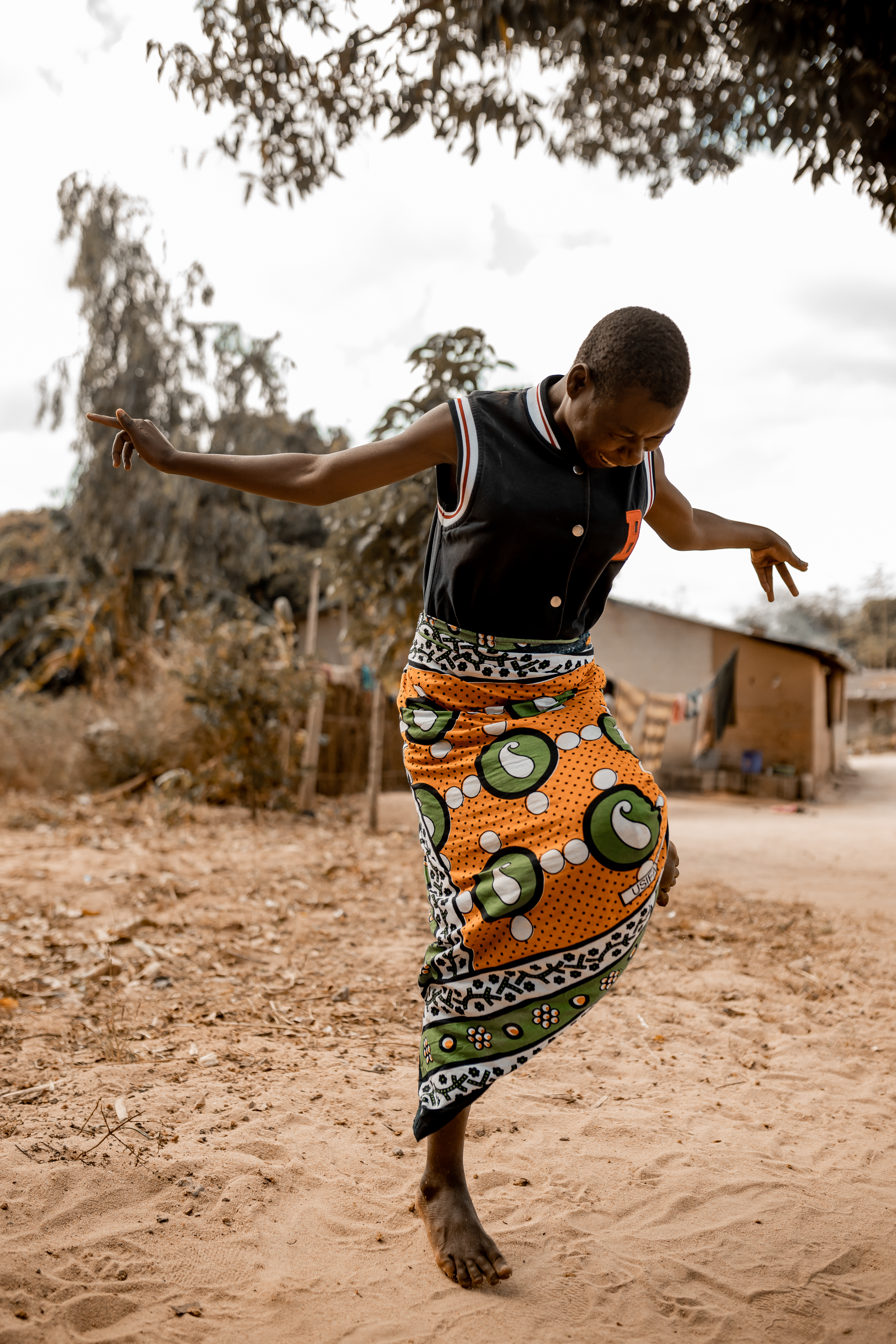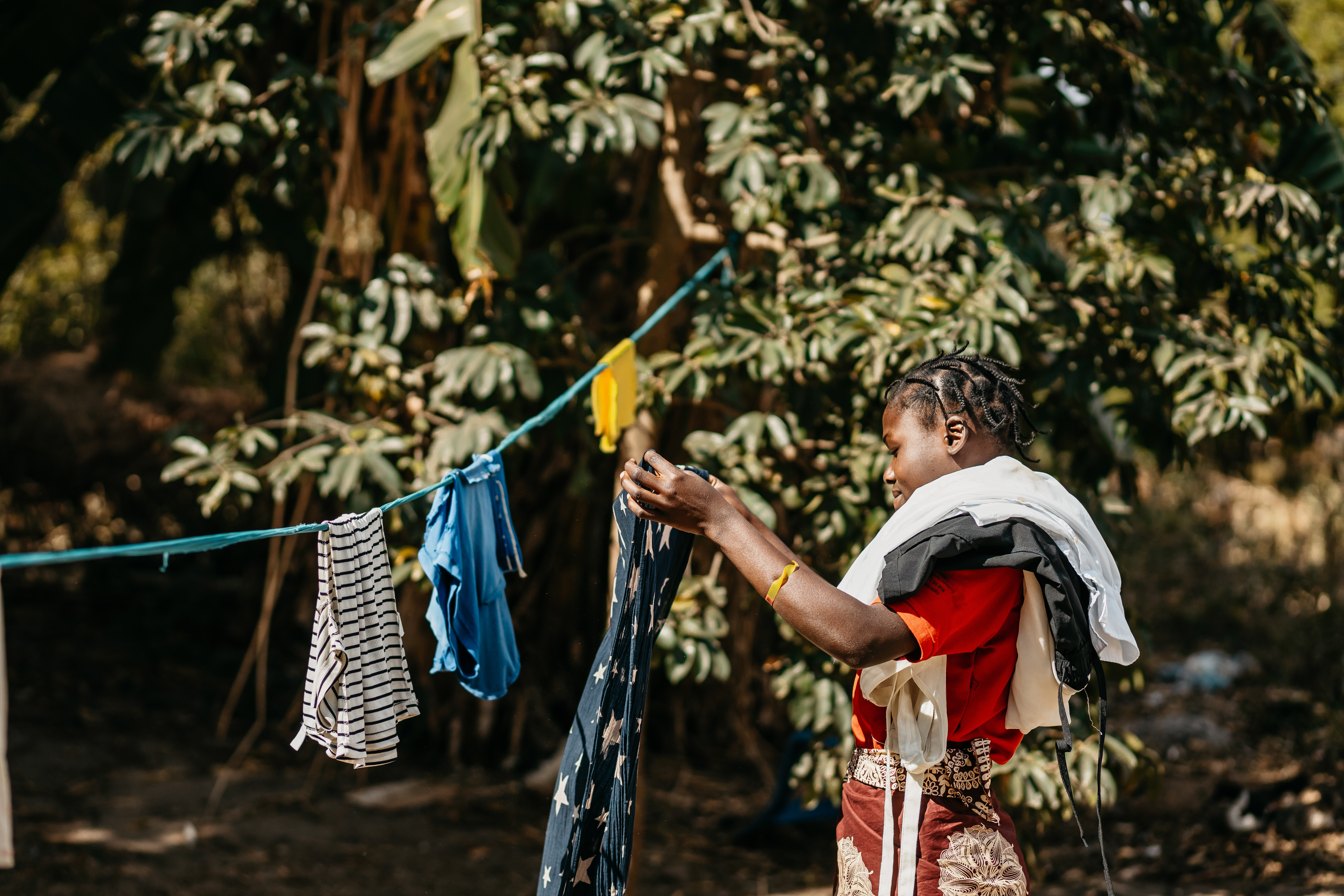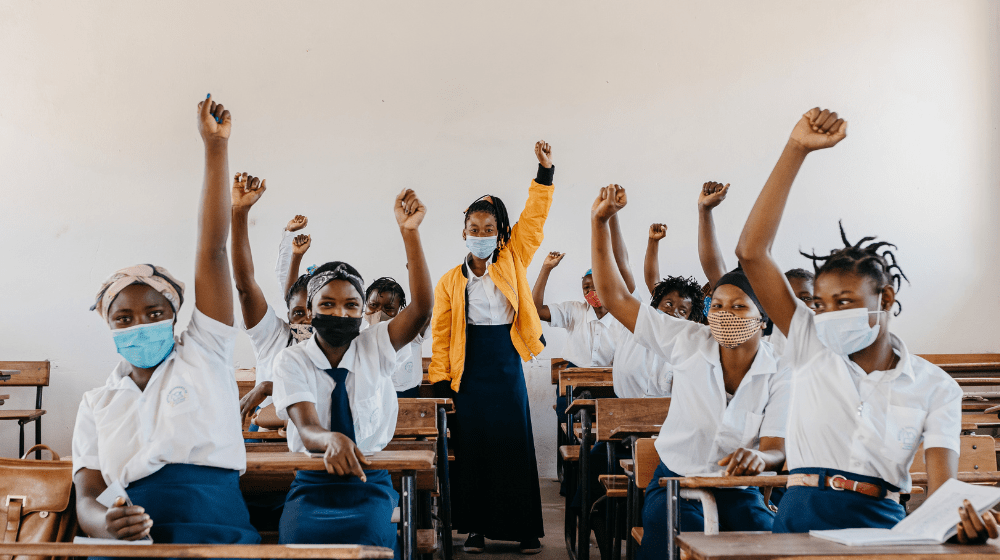Marta* was 13 years old when her mother told her she would have to marry a 73-year-old man. No longer able to afford Marta’s schooling, her mother saw marriage as the only solution, and when Marta refused, she was asked to leave her home.
“She (my mother) went inside, took my clothes…and kicked me out of the house,” shares Marta.
Marta’s story is one too many in a country with one of the highest rates of child marriage in the world; nearly 1 in 2 girls in Mozambique marry before the age of 18 (DHS, 2011).
The impacts of child marriage on girls’ physical and mental well-being is alarming, with global data showing that married girls often become pregnant while still in adolescence, increasing their risk of complications in pregnancy and childbirth including the risk of obstetric fistula and maternal mortality. Child marriage also affects the bodily autonomy and agency of girls to negotiate safe sexual practices, increasing the risk of HIV/AIDS, as well as violence, including sexual violence (UNFPA, Child Marriage Sectoral Issue Paper, 2022).
“The main cause is poverty. The parents subject the girl to child marriage because they see it as a benefit,” shares Celia Manuel, Social Worker of the Health, Women and Social Welfare Service in Nampula, Mozambique. Youth mentor Suraia Ministro also notes that, “for the parents, as soon as the girl has her first menstrual cycle and after completing her initiation rites, they think she is ready for marriage.”
 With swift intervention, Marta’s predetermined future took a different turn, as she became one of the approximately 9,000 girls in Nampula and Zambezia provinces supported by the Global Programme to End Child Marriage (GPECM) to continue or reenroll in school, and avoid child marriage.
With swift intervention, Marta’s predetermined future took a different turn, as she became one of the approximately 9,000 girls in Nampula and Zambezia provinces supported by the Global Programme to End Child Marriage (GPECM) to continue or reenroll in school, and avoid child marriage.
“After being kicked out, she [Marta] came to my house and explained her situation. We spoke to the community leader and to the social action office. Finally, we went back to her mother’s house. We helped her understand it wasn’t right to marry a 13-year-old girl with a 73-year-old man. Because it could ruin her future,” shared Rapariga Biz mentor Suraia Ministro.
Girls like Marta receive support from programs such as the multi-donor funded** GPECM program, launched in 2016 by UNFPA and UNICEF, and Rapariga Biz (RB), a joint initiative of UNFPA, UNICEF, UNESCO and UN Women launched in 2016 and funded by the Governments of Sweden and Canada, that work with the Government of Mozambique and civil society organizations to provide the necessary support for women and girls to avoid early and forced marriage.
This support includes training community leaders and mentors in the prevention and mitigation of child marriage. Since the programs’ inception, 5,600 trained female mentors have reached more than 790,000 girls and young women with peer-to-peer mentorship including knowledge around their sexual and reproductive health and rights and life skills. The mentors also work closely with community and religious leaders, and local authorities to identify cases.
Another mentor, such as Anica, also trained under the Rapariga Biz program, shares her motivation to help others avoid similar experiences:
“I got pregnant when I was 17. After having a child, I didn’t study for two years, because I was in grade 11 when he married me. When I provide my sessions, the girls are able to follow my advice. I’m delighted because, until this day, none of the girls from my sessions have been married.”

School attendance also has a large impact on the prevalence of child marriage, with 2017 Census data showing that girls aged 15 - 17 who were in school were 8 times less likely to marry as a child than girls who have either never attended - or have left - school.
“Child marriage is a devastating byproduct of gender inequality, which threatens all facets of a girl's life, her health, her education and her potential to become an influential actor of the social, economic, envionrmental and political development of her country. UNFPA supports all efforts of the national authorities and civil society for Mozambique to be a country where all girls, particularly those most vulnerable, are informed and supported to make their own decisions about when, if, and with whom they choose to marry,” shares Bérangère Boëll, Representative, UNFPA Mozambique.
With child marriage being closely linked to lost economic and employment opportunities for adolescent girls and young women, ending such practice is crucial in alleviating poverty and promoting economic development for the girls, their families, communities and societies at large. By doing so, countries, like Mozambique, can reap the social and economic benefits of a demographic dividend.
To reduce such harmful practices in Mozambique, joint programs such as RB and GPECM provide the necessary support to propel girls past gender barriers, enabling individuals, like Marta, to be the sole decision-makers in their lives and become changemakers, like Anica, within their communities.
Learn more about the Global Program to End Child Marriage and Marta’s story by watching a video here.
*Name changed to protect individual’s identity
**Donors funding the GPECM include: Belgium, Canada, Netherlands, Norway, United Kingdom, Italy, European Commission through the Spotlight Initiative, and Zonta International


